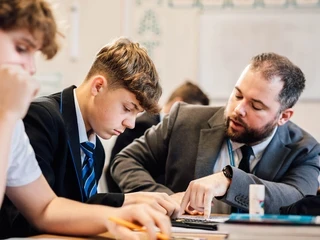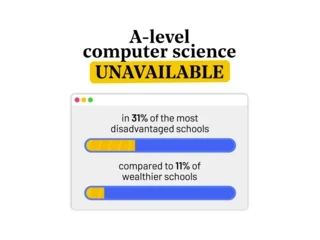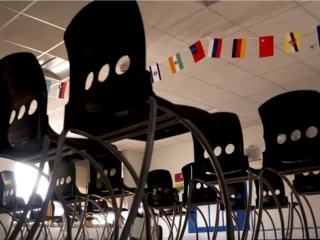
Our campaigns
Our schools and teachers need champions
Breaking barriers in education to support schools and inspire future teachers
Teachers do an incredible job under challenging circumstances. But what if the education system weren’t so challenging?
At Teach First, we speak out on the issues putting the most pressure on schools serving low-income communities - and holding back the children who face the biggest barriers.
Our Government manifesto outlines how to build an education system where every child can thrive.
To attract Tomorrow’s Teachers, our report calls for more flexibility, better balance and stronger career paths.
Our latest report, Breaking the cycle, sets out nine key recommendations to help tackle child poverty and better support schools.
Together, these reports form a roadmap for change - one that puts children, teachers and schools at the heart of national priorities.
Together, we can make change happen.

Our campaigns
Child poverty
Breaking the cycle
Poverty continues to limit the life chances of too many children. While schools are doing all they can, they’re being stretched beyond their limits. Change is urgently needed - to allow teachers to teach and to give all children the opportunity to thrive.
To break the cycle of poverty, all children - especially those facing disadvantage - need access to excellent schools, great teachers and joined-up support beyond the school gates. Without urgent investment and better coordination between services, too many will continue to be held back.
Read our full report to explore the evidence and discover our nine key recommendations to help every child succeed.

Teacher recruitment
Missing teachers
As the Spending Review approaches, our latest research reveals a deepening teacher recruitment crisis, hitting disadvantaged pupils hardest. A lack of trained teachers is locking them out of vital A-level subjects like computer science and physics. We’re urging the government to act now: improve pay and working conditions, restore pay for teacher trainees on employment-based routes, and offer targeted incentives to get great teachers into the schools and subjects that need them most.

Tomorrow’s teachers
Whilst we know teaching can offer job security, good holidays, generous pensions and deeply fulfilling work, teaching also involves many trade-offs which are no longer compelling enough to graduates. Recruitment is falling and action needs to be taken. In this research, we set out an ambitious roadmap of the changes needed to get Gen Z into the classroom.
Tomorrow’s teachers are waiting. And that wait must end today.

Inclusivity
Missing Pages
Did you know that, even today, a child can finish school without having read a single book written by a person of colour? This needs to change. Through our Missing Pages campaign, we’re calling for greater representation of ethnic minority authors in English literature lessons.

School funding
Classroom to career
Children from disadvantaged backgrounds face barriers to accessing professional careers. We think investing in careers education should start in primary school: our classroom to career campaign calls on large employers to start engaging with their future workforce early, so children are encouraged to pursue potential career pathways.
Rethinking pupil premium
All too often, it’s the schools in the most disadvantaged areas that face the biggest challenges. But tackling those challenges doesn’t come cheap. We’re pushing the government to fairly fund schools serving the poorest communities.


Past campaigns
Shut in not shut out
When the pandemic struck, millions of children were shut inside instead of going to school. As a result, many were shut out of the opportunities they deserve. We campaigned to make sure every child, regardless of background, had the same access to learning.
Campaign wins:
- An additional £1.8bn from the government for the education recovery package in September 2021.
- Education recovery funding doubled for secondary schools in May 2022.
- Nearly 2 million laptops donated to schools through government support.
- Teach First supporters provided an additional £1m worth of computer equipment.
